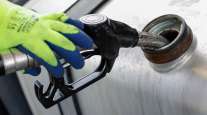Detroit Diesel, Other Makers Submit 2010 Engines to EPA
This story appears in the Aug. 31 print edition of Transport Topics.
Detroit Diesel Corp. said it will submit its first heavy-duty 2010 engine for U.S. Environmental Protection Agency certification during September, joining Cummins Inc., Mack Trucks Inc. and Volvo Trucks North America, which already have submitted applications to the agency.
“For the DD15, we have passed all of the emissions testing internally, and we are compiling all of the appropriate documents to submit our application for certification to the EPA sometime in September,” David Siler, Detroit Diesel’s director of marketing, told Transport Topics. “The rest of our heavy-duty engines, the DD13 and 16, will be submitted shortly thereafter.”
He added that Detroit Diesel expects “full certification for compliance before Jan. 1, 2010.”
An EPA spokesman declined comment to TT last week regarding the certification process.
“We have already begun the process of submitting paperwork and other required documentation for both our heavy-duty and midrange engines for EPA 2010 certification,” Cummins spokeswoman Christy Nycz told TT. “We fully expect to have certification for our 2010 engines prior to Jan. 1, 2010, when we start production of our new engines.”
Nycz added that Cummins does not anticipate any certification issues because “we continually work with the EPA year-round
in preparation for the certification process.”
“Our application was submitted in July and is being reviewed by EPA,” VTNA spokesman James McNamara said. “Volvo’s EPA ’07 certification application was submitted to EPA in July 2006, with certification in November 2006.”
Similarly, Mack spokesman John Walsh said, “We applied for certification in July, in the same time frame as in 2006 leading up to EPA ’07.
Mack and VTNA are subsidiaries of Volvo AB. Detroit Diesel is a subsidiary of Daimler Trucks North America, which also builds Freightliner and Western Star trucks.
Navistar Inc., which makes International Trucks and Maxx-Force engines, said its 2010 system was ready to meet certification, but the company declined to say when it would submit its application.
“We currently have more than 60 engineering test vehicles with 2010-compliant engines in operation today, logging thousands of miles each and every week,” Navistar spokesman Roy Wiley told TT. “Our team is doing the testing, and since our 2010 advance EGR solution does not require significant changes to truck hardware, the main focus is on engine calibration refinements.”
Paccar Inc., which builds Peterbilt and Kenworth trucks, is introducing its first heavy-duty engines in 2010 but declined to comment on its certification schedule.
All manufacturers except Navistar chose selective catalytic reduction, which converts NOx to harmless nitrogen and water vapor in the aftertreatment, to meet the mandate.
Several engine makers using SCR said they expected fuel economy to increase with next year’s models.
“Volvo’s SCR technology for EPA 2010 . . . will deliver increased fuel economy, lower cost of operation and no active diesel particulate filter regenerations, along with near-zero emissions,” McNamara said.
Detroit Diesel’s Siler said his company’s 2010 system could enable customers to recoup all the fuel mileage that he said was lost through changes made necessary by EPA mandates going back to 1998.
“We surpassed 25 million demonstrated miles of reliability testing and fuel-economy enhancement that our customers can expect with BlueTec,” he said. BlueTec is the brand name of Detroit Diesel’s SCR system.




